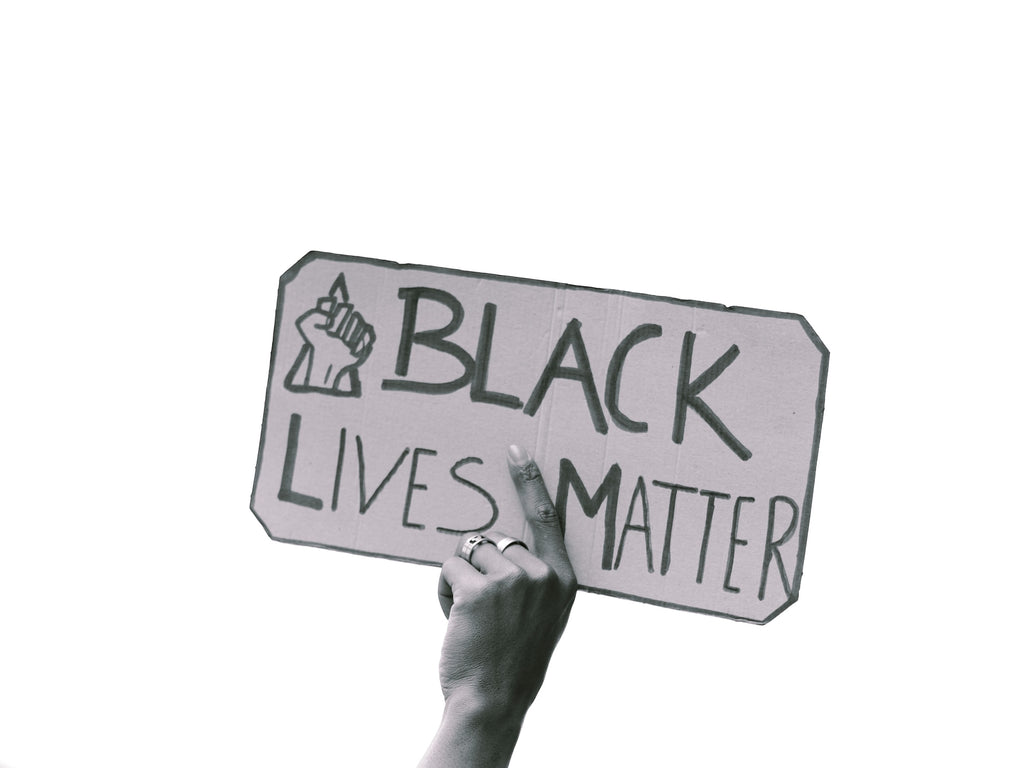We spend 30% of our lives working, yet around 70% of people feel unsatisfied with their job. A lot of this has to do with workplace culture. In my work as a diversity and inclusion consultant, I often talk to clients about the concept of presenteeism. This refers to people coming to work despite experiencing things that justify short- or long-term leave – like sickness or grief – and their performance suffering as a result. Picture this: you have a cold or stomach bug, but you go into work anyway because you just have to hit that deadline. You can’t focus, you keep making mistakes, and everything takes you twice as long. That’s presenteeism in action.
We can take it even deeper than that. Presenteeism is about mental health – if we have experienced loss, trauma or illness, our ability to show up and do good work is compromised. Our brains are scattered, confused, and distracted. Thankfully, there are usually policies for that – paid or unpaid leave – that employees can take while they recuperate and get support.
Presenteeism costs businesses over $230 billion a year and the loss is three times greater than that of absenteeism. So, why would employers ever let this happen? There are three key reasons which I believe connect the high rates of job dissatisfaction with the pervasiveness of presenteeism in modern workplaces.
Firstly, discrimination and harassment are rarely accounted for as reasons to take time off. One study in the Journal of Counselling Psychology found that “race related stress was a significantly more powerful risk factor than stressful life events for psychological distress.” Another tells us that sexual harassment can have “serious health, emotional, and economic consequences.” While some workplaces may have methods to reduce discrimination and harassment, it’s also important to consider that many marginalized people experience microaggressions and other forms of discrimination all the time, which can really weigh down on your mental health.
Secondly, research shows that CEOs tend to make decisions based on what’s best for business rather than moral values – this, coupled with the stigma and silence surrounding mental health, means that many people work in conditions that are not psychologically, or even physically, safe. Many leaders don’t recognize the harmful impact of presenteeism, nor do they know how essential an inclusive and safe workplace is to both their employees and their bottom line.
Thirdly, work is a religion. I don’t know if this is a healthy or accurate assessment, but we’ve recently been inundated with think pieces about how millennials are defining their identity around what they do for a living. I, for one, have my job in my Instagram bio and am more likely to ask “What do you do?” before “How do you do?”. Working hard is cool and many a workplace culture is centered around “doing the most”. This culture often makes it unsafe to speak up about feeling stressed, overwhelmed or burnt out.
Combatting presenteeism is largely the responsibility of the employer to ensure a safe and inclusive workplace, and to implement practices such as mental health days to allow people to process life beyond traditional policies. I also believe that we can play a role in our own self-advocacy. Here are ten tips for self-advocacy in the workplace:
1. Know your rights
I know policies are really boring and often hard to find. Sometimes, they’re even designed that way. Workers’ rights are often hidden within walls of jargon inside a company policy that seems longer than the Victorian-era novels you were made to read in high school. Take time to read them and find out what kinds of leave, professional development and benefits you are entitled to, and make sure to take advantage of them. You’ve earned them – literally.
2. Practice courageous conversations
Courageous Conversations is one of many models that help people have better, more meaningful conversations, especially about difficult topics. It’s a strategy that helps you reach a resolution with someone that may pushing back against what you’re asking for. It’s also helpful when there’s a power dynamic at play, like when you’re talking to your boss.
3. Use your sick days for your mental health
It seems obvious, but many of us have internalized the pervasive stigma about mental health. We’re told to get over it or to “try working out” when we’re feeling low or depressed. As a result, we begin to believe that those days when we can’t get out of bed or breathe in a crowded space are silly things we can overcome. Whether diagnosed or not, depression, anxiety, PTSD and more are just as serious and important as the flu or a broken leg. If you need to lie in bed for a day or two, you should. And you don’t need to justify it.
4. Find your allies
Depending on your work environment, it can seem really daunting to approach leadership with a concern, especially about the kind of workplace culture they’ve been instrumental in creating. It’s likely that others feel similar to you. Making meaningful connections can help you approach leadership as a team representing collective concerns, or simply establish camaraderie and friendship.
5. Establish frequent check-ins
Workplaces are often sanitized of emotions. We leave our feelings and personal troubles at the door and get on with business. A small way to chip away at that cultural norm is to establish check-ins at team meetings that go beyond what everyone’s working on for the week. Try asking how your coworkers are feeling, what’s brought them joy recently, or what lifts their spirits. Being personal and professional don’t have to be mutually exclusive.
6. Ask for feedback
This is super vulnerable but really important for personal growth. It’s also one of the first key steps to getting a raise or promotion. Doing so develops a rapport between you, your boss, and peers, and it allows you to potentially reciprocate the feedback.
7. Ask for help
Asking for help is hard, especially at work. But if you feel overworked, overwhelmed or stressed, reaching out to others is really important. It could be as simple as asking for something to be taken off your plate, as complex as needing help getting in touch with a therapist, or somewhere in between. You choose what works for you.
8. Practice mindful apologies
Women tend to apologize more than men because women are socialized to believe that they are bossy, confident, opinionated or sassy, and feel the need to apologize if they perpetuate these behaviors. You may see women in the workplace saying sorry for things that shouldn’t apologize for, like disagreeing with someone’s point, asking for clarification or speaking for more than five minutes. “Over-apologizing can undermine your authority and negatively impact your career,” says Forbes writer Elana Lyn Gross.
However, this doesn’t mean we should throw away apologies – instead, we should be more mindful about how we use them. Research also shows that men have a harder time admitting they’re wrong and apologize for fewer mistakes. A mindful and intentional approach to apologizing could mitigate both sides of this issue.
9. Write everything down
If you experience discrimination or harassment in the workplace, it’s really important to keep a written record. The reasons for this are manifold. Firstly, you want to create a log of incidents that prove the frequency of the issues (most harassment appears in the form of subtle and ongoing incidents). Secondly, it’s really easy to second guess yourself (cue reactions such as “Did she really just say that?”). Thirdly, if you end up making a formal complaint, especially if you are a member of a union, details are really important to get the resolution you deserve.
10. Put your name forward for big projects
Aside from hiring practices, one of the biggest reasons we see a lack of diversity in leadership across almost every industry is the biases in project assignment. In many jobs, the bigger, more important and lucrative projects you get to work on, the more opportunities for advancement you get. However, just like with hiring, bias plays a role when management choose who to give big projects to. Do you ever feel like you keep getting stuck with boring paperwork while your colleague is making business deals in Bali? Next time a big project comes up, make sure to advocate for yourself, state your case and prove your worth, because guess what? You’re worth it.
This post is tagged as:
You may also like...
The Latest
People & Places
How Ara Katz is Redefining “Self-Care” as Rooted in Science with Seed
The co-founder, mother, and self-proclaimed serial entrepreneur unpacks her philosophy on what it means to be well. Ara Katz hates the word “success”. Not because of its listed definition in a di...

Do Good Werk
9 Passive-Aggressive Email Phrases That Are Basically Evil
A Rosetta Stone for every time you want to :’).

Woo Woo
Get to Know Your Astrological Birth Chart
How to find meaning in the stars — and what it means for you.

People & Places
The 5 Best Places In New York To Meet Your Next Investor
Where to rub shoulders with the city's movers and shakers.

Do Good Werk
10 Unhealthy Thoughts You Convince Yourself Are True as a Freelancer
If you work alone, you might be particularly susceptible to distorted thoughts that hurt your mental health.

People & Places
Creating a Conference-Meets-Summer-Camp for Adult Creatives
An interview with Likeminds founders Rachael Yaeger and Zach Pollakoff This past September, I sat in front of an obituary I wrote for myself after a session with a death doula. No, I didn’t know w...

People & Places
When Something Golde Stays: An Interview with Golde’s Co-CEOs
“For us it was never a question,” says Issey Kobori, speaking of the decision to build a business with his partner Trinity Mouzon Wofford. At just shy of 27, Kobori and Wofford have secured a host ...

Better Yourself
Are They Toxic? Or Are They Human?
There’s a difference between putting up boundaries and putting up walls, and the latter is what breaks relationships.

Do Good Werk
How To Combat Seasonal Affective Disorder At Work
Here’s what to do if seasonal affective disorder starts to take a toll at the office.

People & Places
Reclaiming Womxn's Wellness Spaces from a White-Dominated World
How The Villij built a collective that their community can connect to.







